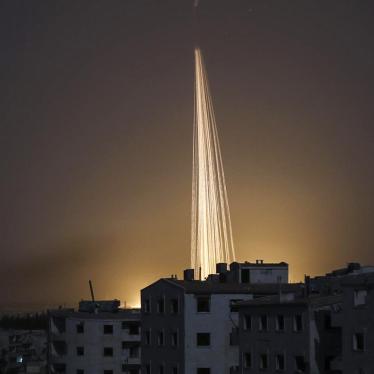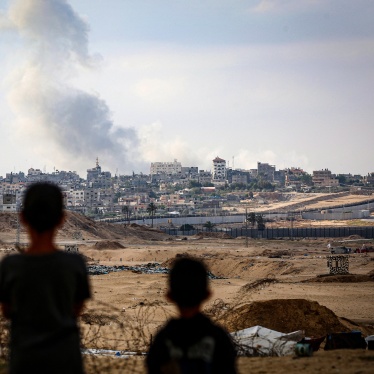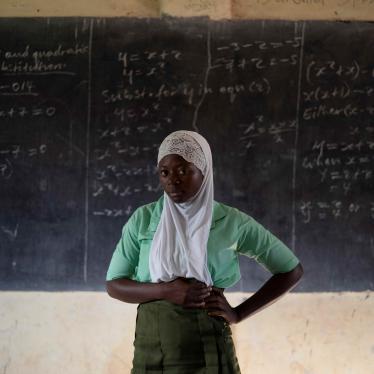Geneva, Switzerland
On most issues, this Third Review Conference of the Convention on Conventional Weapons (CCW) lived down to our low expectations. There was no agreement on the proposal to begin negotiations on cluster munitions in the CCW. There was no agreement on a legally-binding instrument on antivehicle mines. There was no agreement on a legally-binding compliance mechanism.
There was agreement on a plan to encourage more states to join the CCW, and on a sponsorship program to get more states to attend CCW meetings. These agreements are somewhat ironic, since there is no meaningful program of work for the next year.
With respect to cluster munitions, there are two separate stories to be told. The first is the sad if predictable story of the formal outcome in the CCW. The tyranny of consensus doomed the proposal for future cluster munition negotiations in the CCW, with the most notable opposition coming from China, Russia, the United Kingdom and United States. Instead, states parties settled for a weak, vague, and limited mandate to continue talking next year about explosive remnants of war, with a focus on cluster munitions.
It is likely not a coincidence that the biggest users and producers of cluster munitions are the ones who insist that endless talks are the right approach, not urgent negotiations. As we have seen with five long years of fruitless talks about antivehicle mines, there is little prospect of anything meaningful resulting from ongoing discussions in the CCW on cluster munitions next year. The talks and the issue will sink into the quagmire that is the CCW.
But there is also a second, very encouraging story to tell about cluster munitions. The humanitarian imperative of addressing cluster munitions quickly became the dominant issue in the Review Conference, even if it was not prominent on the agenda or in many of the formal discussions. At the beginning of the meeting, both UN Secretary-General Kofi Annan and the International Committee of the Red Cross in essence called for a prohibition on unreliable and inaccurate cluster munitions, echoing the call of Human Rights Watch and the Cluster Munition Coalition.
The number of states on board the proposal to begin negotiations in the CCW on cluster munitions rapidly grew from the initial six to 27, with three other states also expressing support for negotiations. Almost all of these 30 states also issued a declaration in the last session calling for a new international agreement that would prohibit unreliable and inaccurate cluster munitions.
The announcement by Norway's Foreign Minister last night, repeated earlier today by the Norwegian delegation here, that Oslo is prepared to lead a new process outside the CCW aimed at a cluster munition treaty is a watershed event. We now have in place the beginning of a process that will lead to a new international treaty. We are confident that this process will be successful, and we are hopeful that it will be concluded rapidly.
Thank you.






